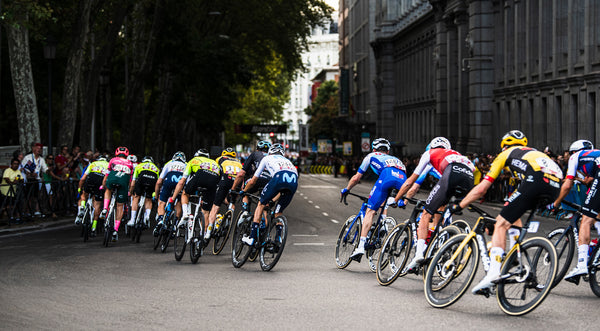Deep into this year’s sweltering Vuelta a España, Ben O’Connor surmised the transfer distances between stages that had become a talking point throughout the race in four words.
“They’ve been f***** up,” he said.
“It’s been stupid. It’s probably one of the worst organised plans for races or between stages I’ve ever seen.”
His voice added to a chorus, with journalists using social media to share screenshots of their Google Maps entries, featuring long lines and grim estimated journey times.
It was the final rest day of the final Grand Tour of the season that was nearing its end and had seen cycling’s key stakeholders opt to begin their respective three-week events outside of their title borders.
The Giro d’Italia commenced in Hungary, the Tour de France, which finished 26 days before the start of the Vuelta, left from Denmark, and the Vuelta from the Netherlands.
O’Connor had abandoned the Tour in July due to injury and started the Vuelta with adjusted goals, focusing on the general classification over stage wins.
At the time of his frank summation, the Australian, and the rest of the peloton, had cycled 2324.1 kilometres out of a total 3280.5km, with six stages remaining. The explosive journey started from Utrecht and saw riders traverse sun-scorched land all the way to Madrid. But it was the undocumented kilometres by plane, bus and car that were perhaps the most tiresome.
“It’s just a joke how much time we’ve spent in the bus every day,” O’Connor continued. “It would be interesting to see the average. I could do the math and figure it out, but I say it would be at least two to three hours on the bus every day. Minimum.”
In addition to the transfer from the Netherlands to Spain, there was also, before the second rest day, a cross-country journey with an estimated drive time of eight hours and 42 minutes from the stage nine finish in the Asturias region in north-west Spain, to Alicante in the south-east. Riders often have chartered flights organised for such slogs, which they did at the Vuelta, twice, but team staff and the media generally heavily contribute to the odometer count of their fleet or rented vehicles.
Kiko García is the technical director of the Vuelta and when asked to comment on this year’s course emphasised…

